Hops are renowned for their ability to impart flavours on beer, but did you know they can be a delicious addition to lemonade? Here's how!

Summer is coming, and with it.. lemonade season!
Back when I was writing Hedonistic Hops, we decided to create a hopped lemonade... and it quickly became one of our favourite ways to use hops.
Because of the way hops impart flavours to beer (and everything else they're used in!) - via acids - they work VERY well with making lemonade.
Generally speaking, you wouldn't necessarily be able to pick out the flavour as specifically being hops. It certainly doesn't taste like beer, either!
No, hopped lemonade tastes like lemonade, just elevated. More complex, with flavours and aromas complimenting the lemon.
Depending on the variety used, it could be slightly floral, maybe a little pine... or even tropical. It's not "in your face", it just tastes... gourmet, without being able to put your finger on how or why.
I'd liken it to using a high-quality honey in place of the sugar. It's a little different, while still being lemonade... and just tastes "fancy".
Anyway, because this recipe is very much about the acids involved, I'd like to discuss those acids first!
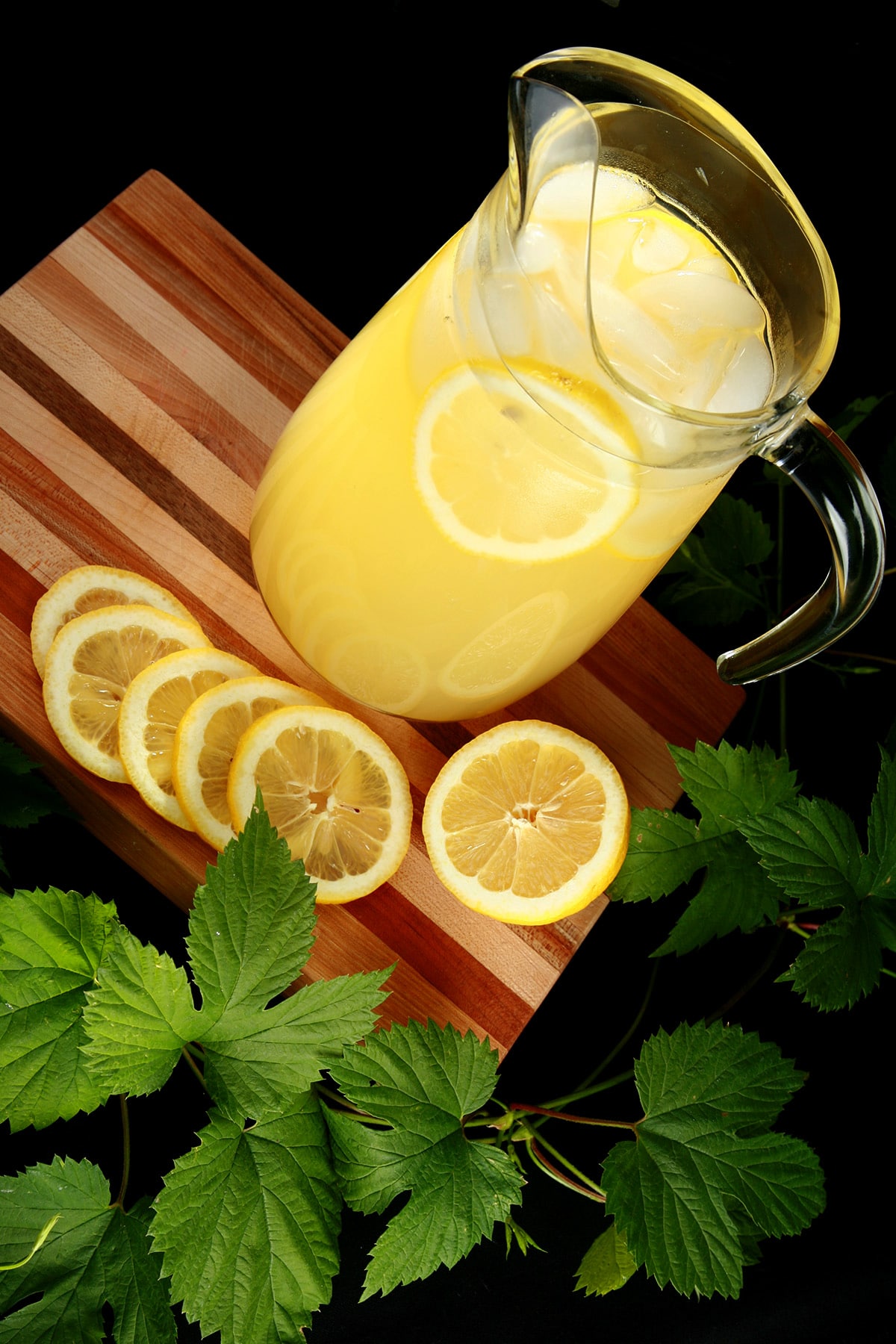
Acid in Hops
The acids contained in lupulin - the sticky yellow “dust” that grows on hop flowers - fall into one of two main categories: Alpha acids and Beta acids.
Alpha Acid
Alpha acids are where the bulk of the bittering properties come from, which is important to consider when choosing hops for cooking with. Too bitter, and you’ll ruin a dish!
When it comes to beer making, hops high in alpha acids are typically used in the initial boil, for a fairly long amount of time.
The boiling draws out the acids into the wort (beer before it becomes beer!), through a chemical reaction called “isomerization”. These hops are commonly referred to as “bittering hops”.
Alpha acids are the reason that hops came into favour as a preservative agent, as they have antimicrobial qualities - preventing the growth of bacteria, while not hampering the ability of yeast to grow and ferment the beer.
The primary alpha acids are:
Cohumulone - The bitterness that comes from cohumulone is known to be a “harsher” bitterness, not as refined tasting as the bitterness that comes from Humulone.
Humulone - This is the main bittering acid - it gets bitter when boiled. It’s known for a less “harsh” bitter. Hops with high alpha levels with most of the alpha acids coming from humulone are considered a good thing.
The other alpha acids include adhumulone, posthumulone, prehumulone.
The attributes of those acids aren’t as well known, and generally aren’t really addressed when brewing beer - or cooking with hops.
Alpha acids are also the reason that beers tend to be sold in brown bottles and in cans - when exposed to both the riboflavin in the wort and sunlight, alpha acids go off, creating a skunky smell.

Beta Acids
Beta acids work a bit differently, when it comes to the bittering of beer.
Rather than their bitterness coming out in a long boil, their aroma and bitterness comes from long term application, usually in dry-hopping, or while aging beer.
The changes come as a result of the acids breaking down. Oxidization, rather than through isomerization.
Much like alpha acids, beta acids also have great antiseptic qualities.
The primary beta acids are Adlupulone, Colupulone, and Lupulone.
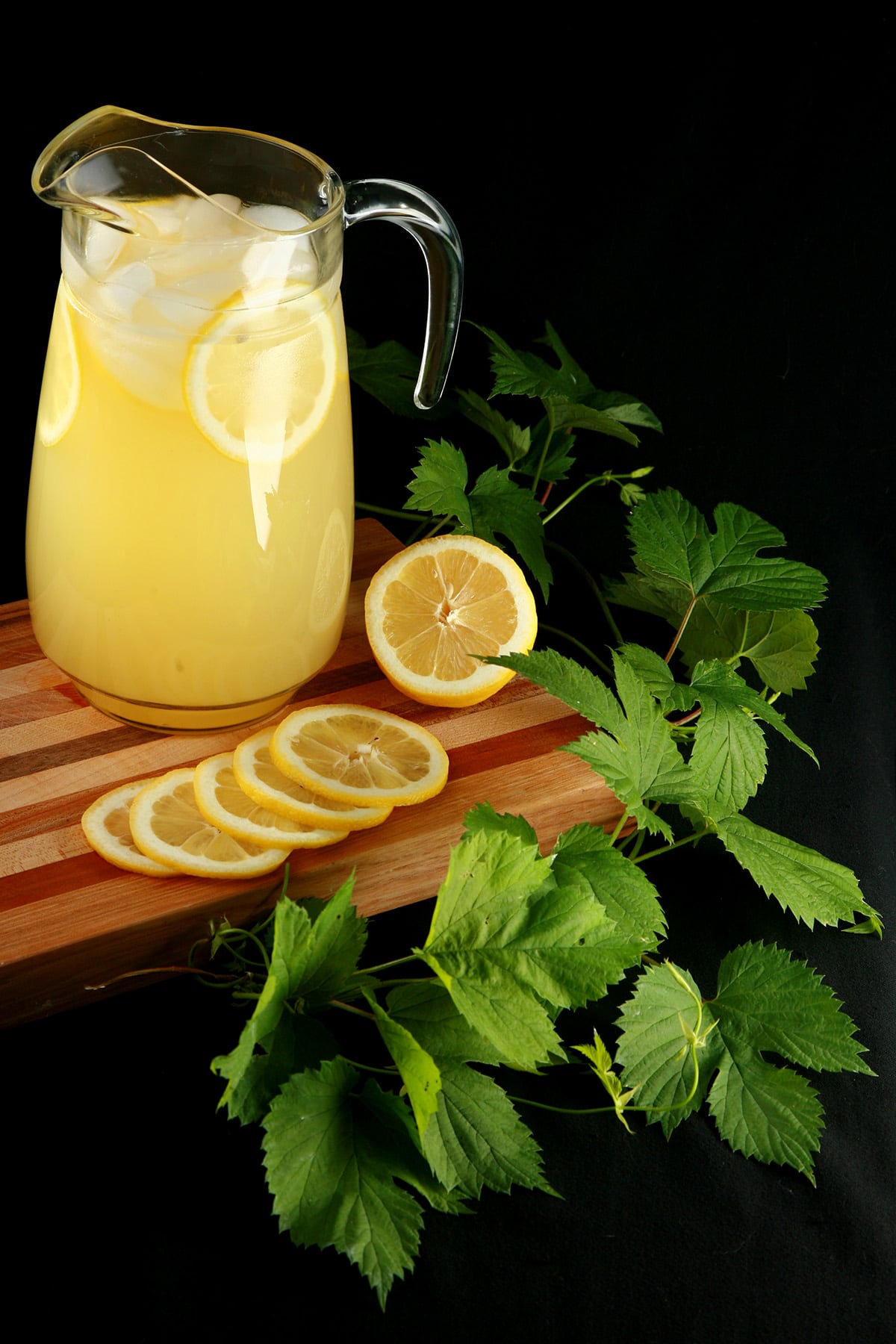
Hop Lemonade
Lemonade is such an easy thing to make, and works SO well with a multitude of hop varieties. As lemonade is naturally acidic, it gives you a lot more leeway in choosing which hops you can use.
For most cooking - as I discussed in the Hop Marinated Chicken & Vegetable Skewers post - you’d specifically want to narrow your hop selections to those with a low acid level.
When making hopped lemonade, I usually use Citra® hops. Not only are they my favourite in general (and make the BEST cheesecake!) - but their high acid content puts them out of the running for a lot of potential uses in the kitchen.
That said, any citrus, fruity, or floral hops work really well for a complex, but still mostly traditional lemonade taste.
Feel free to try other flavour profiles if desired! Lemon works well with almost anything, so you really can't go wrong using your favourite hop varieties.
Because the hop variety we prefer for lemonade is a high acid hop, this recipe includes a little baking soda, to tone it down a little. If you’re using a low acid hop, feel free to skip the baking soda.
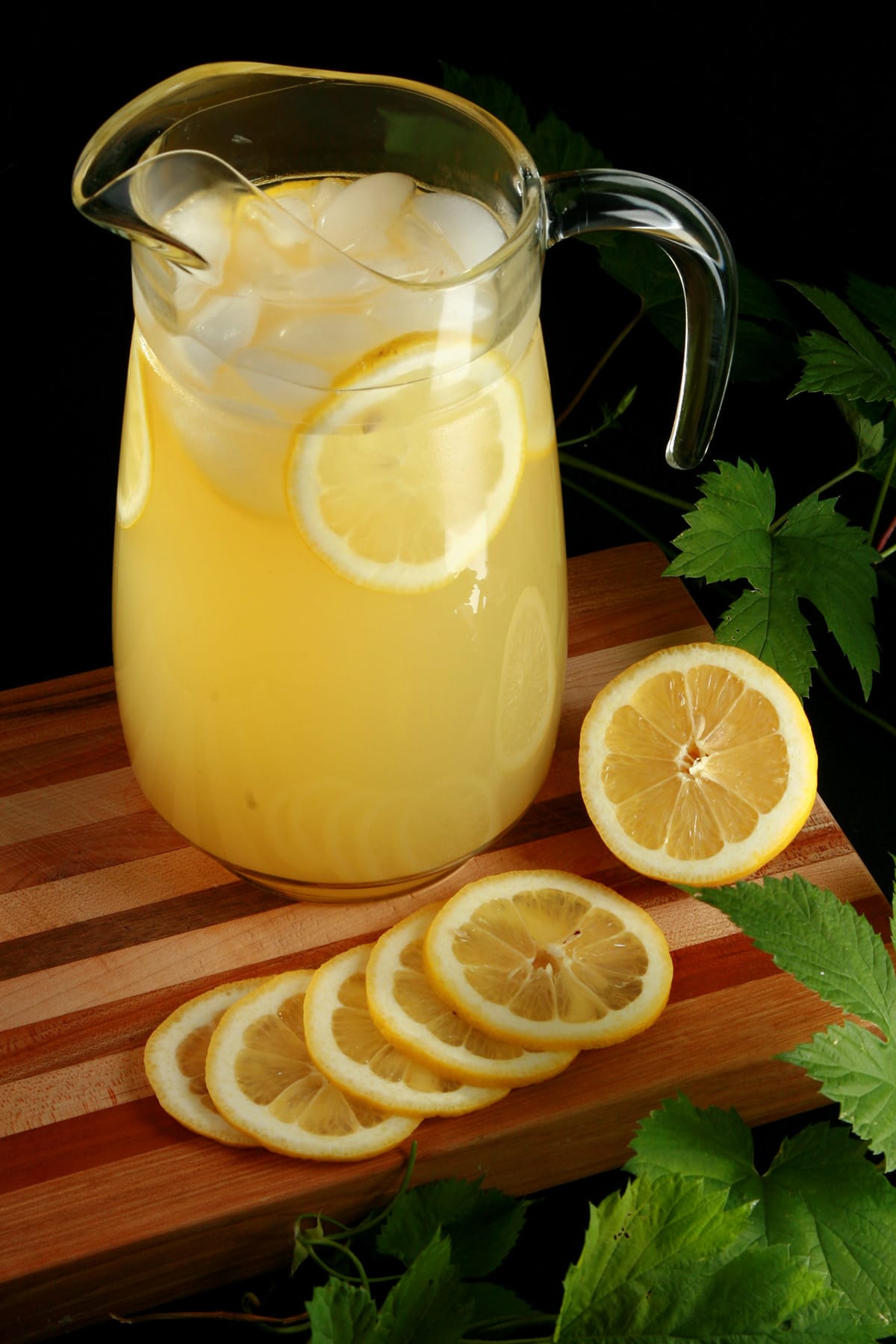
For Single Use Lemonade
For single use lemonade, strain syrup into a jar, cover and refrigerate for up to two weeks.
To serve, measure about 3 tablespoon of lemonade syrup into a tall class, top with cold water, and stir gently to combine.
A Note on Hop Format
As I mentioned in my Homemade Hop Extracts post, hops come in 3 main formats - pellets, loose leaf, and fresh.
This recipe was written to use dried hops - whether pelletized or loose leaf hops.
If you’d like to use fresh hops for this, use about 1 oz.

Fan of hops? You'll LOVE my cookbook, Hedonistic Hops: A Hop Head's Guide to Kitchen Badassery"!
Hops are prized for their ability to impart varied, complex flavours to beer… but did you know they can also be used culinarily? While hops may seem like a bizarre or exotic item to cook with, it’s the same as using other herbs and spices in your kitchen… you just have to know what to do with them. Appetizers, main dishes, beverages.. even desserts can be uplifted with hops! Even those who are not fans of beer will love the unique flavours that various types of hops can bring to their plate. Floral, earthy, peppery, citrusy… Cooking with hops is a great way to expand your seasoning arsenal!
Order your copy directly through this website, through Amazon, or through any major bookseller!

More Cool Summer Treat Recipes!
Looking for a tasty way to cool down? I've got you...
50 Unique Ice Cream Recipes
Creamy Blackberry Peach Popsicles
Frozen Dessert Pizza
Hop Sorbet
Mango Lassi Popsicles
Mango Mojito Ice Cream
Maple Walnut Ice Cream
Moon Mist Ice Cream
Quick Sweet Corn Soda
Southern Comfort Peaches N Cream Popsicles
Sweet Corn Ice Cream
Tiger Tail Ice Cream

Share the Love!
Before you chow down, be sure to take some pics of your handiwork! If you post it to Bluesky, be sure to tag us - @CelebrationGen. We're also on Pinterest, so you can save all your favourite recipes to a board!
Also, be sure to subscribe to my free monthly email newsletter, so you never miss out on any of my nonsense.
Well, the published nonsense, anyway!
Hop Lemonade
Equipment
- 2 L Pitcher
Ingredients
- 1 cup Water
- 1 cup Granulated sugar
- 1 Lemon, Zest Of
- Pinch Salt
- ¼ teaspoon Baking soda
- ½ oz Dried hops - leaves or pellets
- 1 cup Freshly squeezed lemon juice
- Cold water
Instructions
- In a medium saucepan, combine water, sugar, and lemon zest.
- Bring to a boil over medium heat, stirring to dissolve sugar.
- Once sugar is dissolved, add baking soda and hops. Stir and remove from heat. Cover and allow to steep for 10 minutes.
- When 10 minutes is up, add lemon juice and stir well.
- Pour through a cheesecloth lined strainer (I find 2 or 3 layers of cheesecloth works best), and into a 2L (½ gallon) sized pitcher. Discard hop pulp.
- Add cold water to pitcher - to taste - stir well.
- Allow to chill for 30 minutes before serving.
Notes
Nutrition
More Hops Recipes!
Are you - or do you know - a die-hard hophead? Just interested in learning more about adding a punch of flavour to your culinary repertoire? Either way, I have some more recipes for you!
Homemade Hop Extracts
Homemade Hop Spa Bath Set
Hop Brownies
HopCorn - Hopped Popcorn!
Hop Flavoured Beer Lollipops - Lollihops!
Hop Flavoured Dark Chocolate Truffles
Hop Marinated Chicken Skewers
Hopped Cheesecake with Citrus Glaze
Hoppy Citrus French Macaron Recipe
Hoppy Citrus IPA Glazed Wings
Hoppy IPA BBQ Sauce
Hoppy Dill Pickle Relish
Hoppy IPA Pickles Recipe
Hop Sorbet




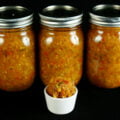


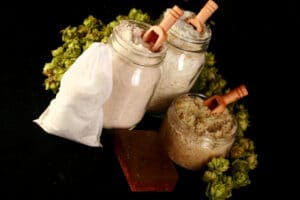
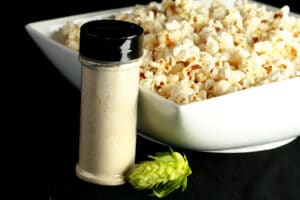

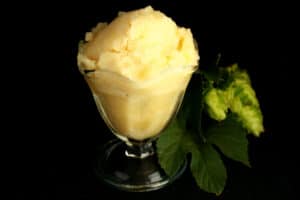
Leave a Reply